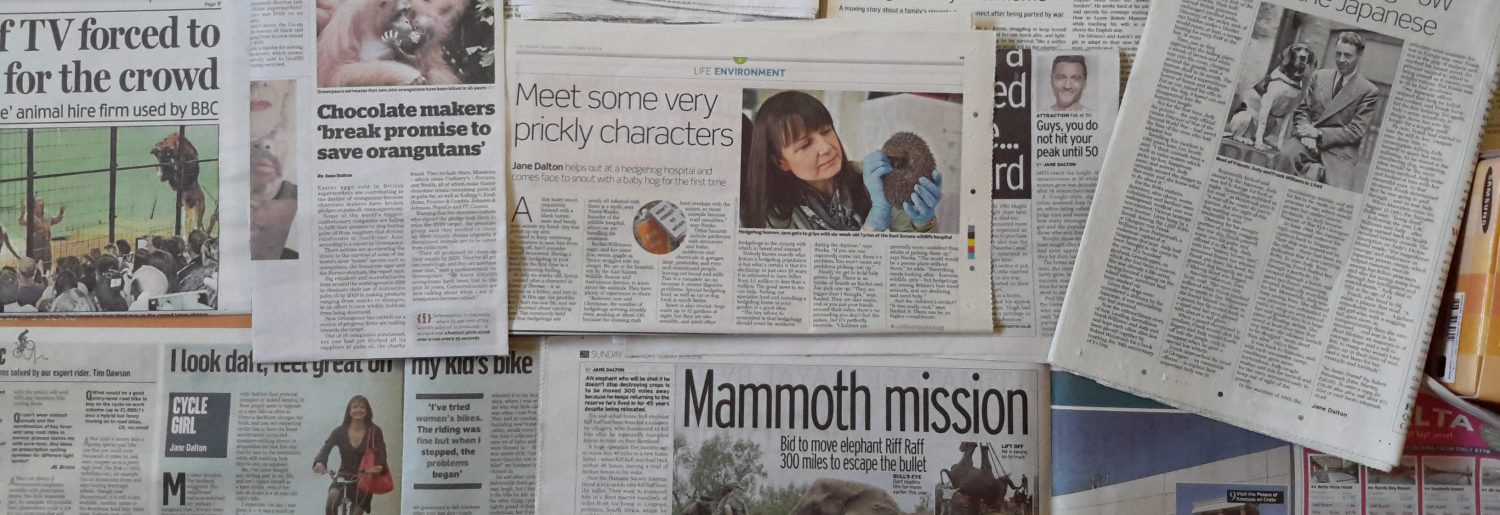THERE’S a fox on the prowl, questioning the coverage of the abuse of bears and baboons in a North Korean circus. Why don’t campaigners such as Peta put their efforts into eradicating human suffering, which gets much less sympathy, Foxy asks.
But hold on – human and animal-welfare organisations are not in competition. Just because evil people do evil things to innocent people doesn’t mean you shouldn’t try to stop evil people doing evil things to innocent animals.
A proportion of the human race is evil and has the capacity to capture, hold and subject other living beings to torture; none of the animal race is evil or has such a capacity.
Groups such as Amnesty and Human Rights Watch carry far more clout than animal-welfare campaigners. A report by either of the former groups gets far more column inches, page views and airtime in the serious media than their animal group counterparts. Organisations such as Animal Aid, Compassion in World Farming and Born Free have all produced well researched reports that end up getting relatively little or no coverage because animal-welfare issues are seen as “soft” – not the kind of subject that hard-bitten Fleet Street editors, news editors and reporters want to be seen devoting time to.
Yes, Korea’s circus bears and chimps got a good show in The Sun. But that’s partly because they made eye-catching, colourful pictures. But pigs in darkened abattoirs being repeatedly kicked by sadistic workers don’t make colourful pictures; cattle crammed into overcrowded lorries on 18-hour journeys across the continent don’t make colourful pictures; young chicks being debeaked don’t make good pictures.
Yes, forced mass labour camps in North Korea that mete out barbaric treatment are horrendous, too, and deserve the world’s opprobrium.
But the human race knows no bounds to its capacity for self-adoration: what other species would go out trapping and killing another species just so it could use its skin – not even for survival – but to create decorative hats for regimental Queen’s guards?
We encourage our species to continue its reproduction boom by giving public money to people for having children when the world’s resources are already struggling to sustain the number of people it has.
We spend vast sums of money on inquiries if a single child suffers deprivation at the hands of its parents and people in authority failed to prevent it. Such cases, which are not uncommon, spark outrage among the public. Of course the abuse is not right – nobody would suggest it is – but it’s not the same as being skinned alive without proper stunning, which is what happens far more frequently in British abattoirs when workers fancy a spot of abuse.
Last month two abattoir workers were jailed for extreme cruelty to pigs including burning them with cigarettes and beating them viciously. One pig was hit more than 30 times in 62 seconds, forcing it to sit like a dog and pant heavily as the blows rained down. The men were jailed for just six weeks and four weeks respectively. One wonders what the sentence would have been had the victims been children. The men admitted a culture of cruelty is rife in UK slaughterhouses. The case did not make headlines.
The life for a typical British chicken involves being trapped in a hot, overcrowded unventilated broiler shed for a lifetime, deprived of food and drink only to be hung upside down to have its throat cut. Again, suffering on a horrendous scale but no news stories, no headlines, no inquiries.
Numerous humanitarian aid charities and human-rights organisations do outstanding work. But that should not preclude the work of their animal-welfare equivalents (and note, I do not say “animal rights” because they are not even working to give animals additional benefits to being on this planet such as lawyers and voting rights – merely freedom from pain and suffering repeatedly inflicted by humans).
For campaigners such as Peta and Animal Aid, it’s not about putting animals first, nor about comparing how much some of us care for either humans or non-human living things. It’s about ceasing the unremitting flow of cruelty and degradation heaped on creatures that don’t have the capacity to either understand or rationalise what’s happening to them or to fight back.
There is no doubt whatsoever that a pig, cow, dog, bear or chimpanzee feels pain every bit as much as a human. If you wouldn’t treat your child or pet that way, don’t do it to an animal that doesn’t happen to live in your house.
The point, as illustrated by the bears on roller skates, is that it’s only the more “glamorous” end of the spectrum that gets reported – in animal as well as human welfare, and the vast majority of suffering goes unnoticed.
For that reason, and most importantly, the debate should never, ever be characterised as a “which comes first” – humans vs. animals. We can – and should – want all living things on the planet to live free of suffering. Except perhaps the evil ones.
